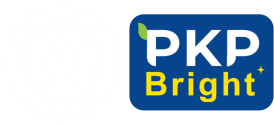In 2021, AEC SP curricula were designed to be completed in 4 years (8 semesters) with a structured and tiered division of courses. They consisted of higher education compulsory courses, university compulsory courses, faculty compulsory courses, study programme compulsory courses, and elective courses. Types of courses required for higher education institutions refer to Law No. 12 of 2012 Article 35, Paragraph 3. Those types of courses required for universities refer to UNS Rector’s Regulation No. 31 of 2020 12, Paragraph 3. Based on the UNS Rector’s Regulation No. 31 of 2020 Article 12, Paragraph 4, each faculty determines the type of compulsory courses. Meanwhile, the study programmes compulsory and elective courses refer to the standards of each professional association and the vision and missions of each study programme. Based on the UNS Rector’s Regulation No. 31 of 2020, students are also required to master the English language by achieving minimum an English for Academic Purpose (EAP) score of 60 (sixty) or an institutional Test of English as a Foreign Language (TOEFL) score of 450 (four hundred and fifty), or the equivalent. The content of each study programme curriculum is explained as follows:
The 2021 AEC SP curriculum has been implemented in accordance with Rector’s Decision 1405/UN27/HK/2021. AEC SP, UNS (Appendix 1.1.B2) applies a KKNI-based curriculum. Students of AEC SP, UNS must complete a minimum of 144 credits (216 ECTS cr-eq), consisting of 118 compulsory course credits (177 ECTS cr-eq) and at least 26 credits (39 ECT cr-eq) chosen from the 80 credits of elective courses. Compulsory courses include of 85 credits of theory (127,5 ECTS cr-eq) and 33 credits of practice/ practicum (49,5 ECTS cr-eq).Â
There are nine PLOs at the AEC SP, UNS and all of them have been distributed to courses that help student achieve the PLOs (Appendix 1.1.B3). Matrix between graduate competencies and courses presented on Appendix 1.3.B.
In order to reach PLOs, it is necessary to formulate learning outcome in every course. CLOs should refer and relate to PLOs. The relationship between the PLOs and the CLOs in the FST SP curriculum is presented in Appendix 1.3.A2, while that of the PLOs and the CLOs in the AEC SP curriculum is presented in attachment Table 1.1.B.2 (Table PLOs-SSC-courses-CLO relationships).
The student intern participants are assisted by an intern supervisor assigned by the Student Internship Unit. Moreover, students are also guided by a field supervisor appointed by the institution where the internship is conducted. The evaluation of the internship activities is based on an assessment of two aspects, namely job field performance and comprehensive mastery of the material. The following components are used to assess the performance aspects: (a) discipline; (b) creativity and field problem-solving skills; (c) teamwork skills; (d) adaptation ability and communication skills; and (e) the relevant working skills. The components for assessing various aspects of material mastery in a comprehensive way consist of mastery and understanding of internship material in writing (reports) and orally (internship exams). Internship examinations are held no later than two months after the internship has been completed. Internship procedures can be seen at http://magang.fp.uns.ac.id. Since the internship duration lasts at least one month, it can support the achievement of PLOs.


